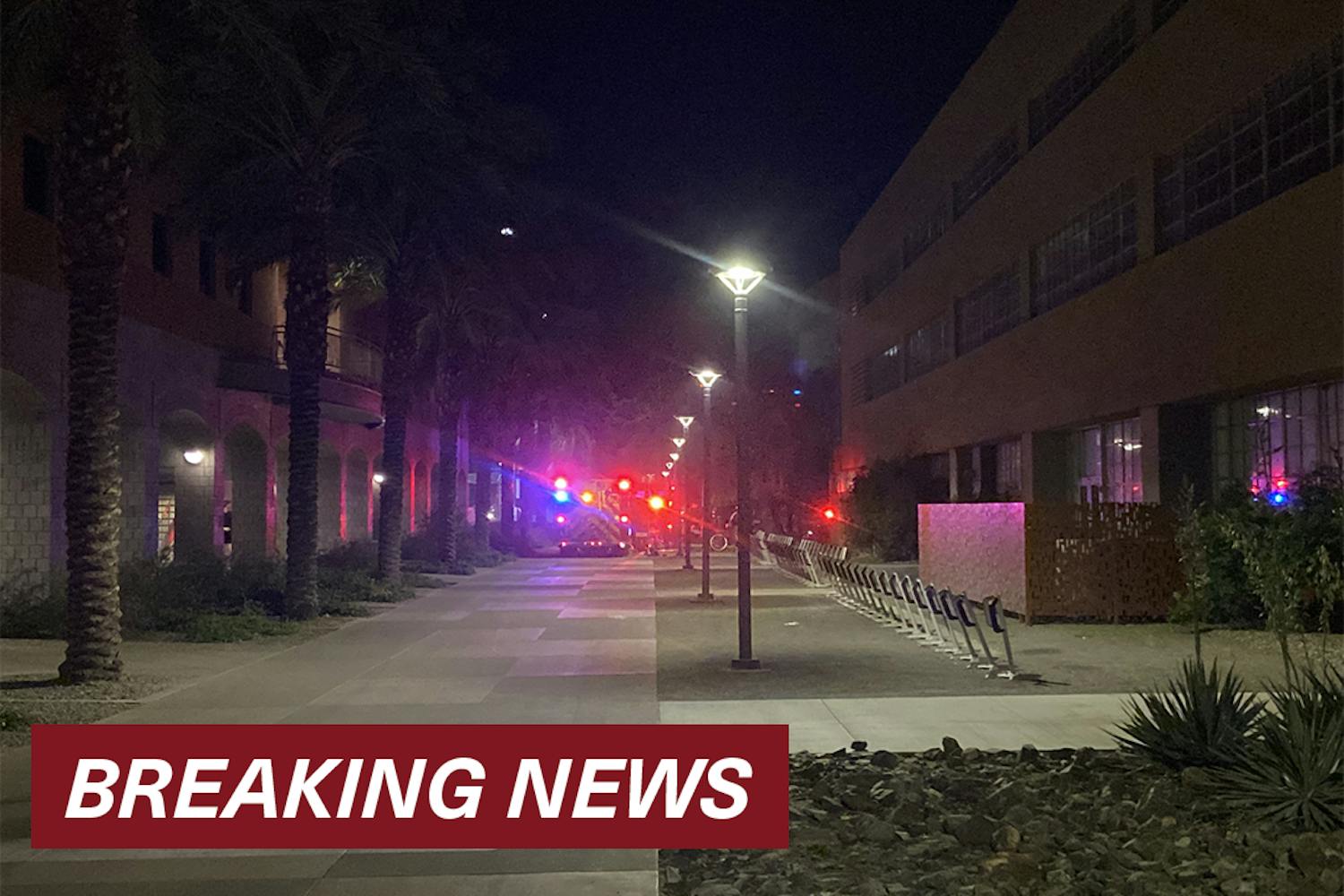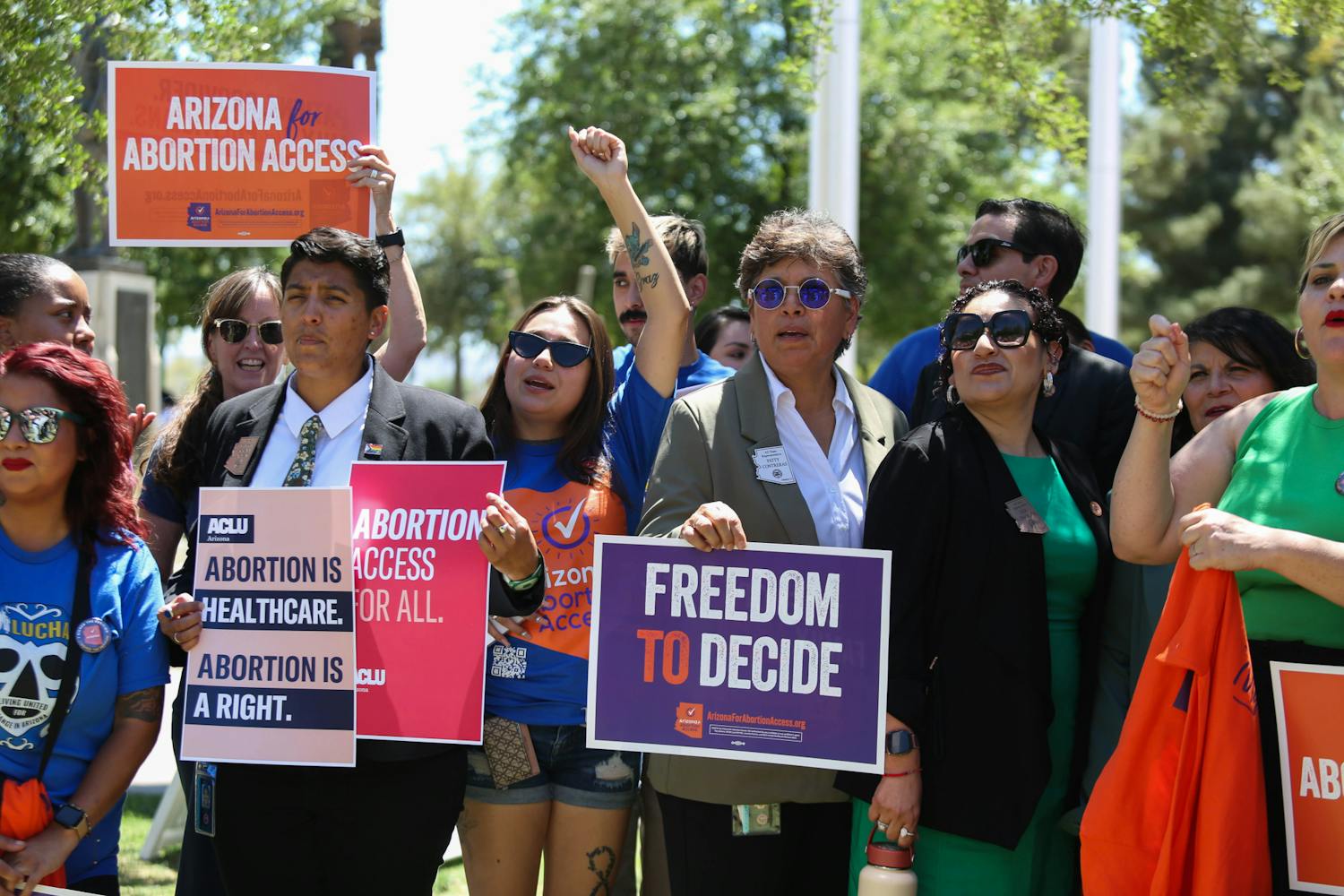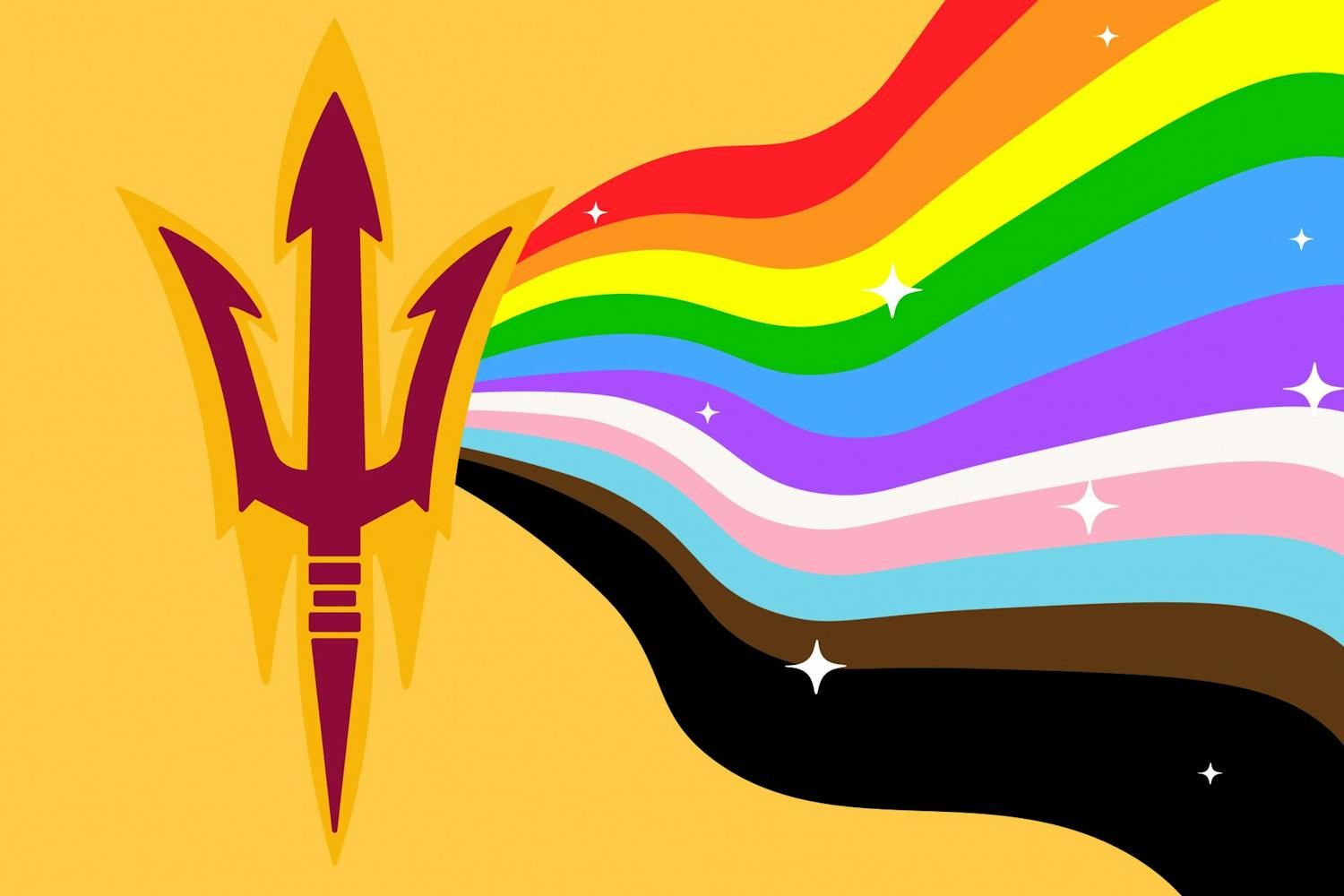Marjani Hawkins, a photographer and ASU alumna, gradually came out as LGBTQ in 2012 before more openly coming out in 2016. Armed with only an idea and a camera, Hawkins wanted to share her experience with the LGBTQ community.
From this came "Queer Girls."
"Queer Girls," a photo book exclusively featuring women within the LGBTQ community is a year in the making, with Hawkins beginning the project during her senior year.
“I was about to graduate,” Hawkins said. “I felt that during a lot of my experience in college, I didn’t think there was a strong LGBT-focused network where I could find friends or even like-minded people I could name and see. It seemed like a type of invisible thing. I didn’t buy that. There has to be more queer people here around me.”
The book, which Hawkins plans on publishing in October, features LGBTQ women in a clothed and a semi-nude setting. Hawkins said this type of setting offers a real and vulnerable experience for the reader.
While the book offers an opportunity for the models to express themselves, Hawkins said the book is also a vehicle for her to showcase herself as a member of the LGBTQ community.
“I’m in the process of coming out and it’s a continuum,” Hawkins said. “It doesn’t happen in one day. I felt like I was erased out of my own community and I thought a lot of people didn’t realize I was queer. I felt this was a means to come out and say this is not outside of me. Me doing a book on queer women isn’t because I’m doing a case study.”
One of the models, woman and gender studies alumna and now a Planned Parenthood worker in Nashville, Grecia Magdaleno, said "Queer Girls" has been unlike any modeling experience she’s taken part in.
Having recently come out when she was approached to take part in the project, Magdaleno said she felt it was an opportunity to further explore the community.
“I had just come out a year before when she’d talked to me,” Magdaleno said. “I was down for doing queer theory, and I wanted to learn more about the community and about myself. It really gave me the chance to own my identity and have a safe space to explore it.”
Beyond self-exploration, Magdaleno said she praised that "Queer Girls" is offering a real view of LGBTQ women.
“When I shot with her, I was adding visibility from my experience, the Latina community that is also queer,” Magdaleno said.
For her, representation was a massive part of her involvement.
"Growing up, I was closeted and I grew up in a conservative, private Christian school," she said. "I didn’t see a lot of Latina women or girls like me. When I participated, I wanted to play my part so that someone in Phoenix who may share a story like me —undocumented parents or growing up in a working class family and she’s queer — can see there are people like me.”
Another model, who wishes to remain anonymous, said she hopes the book will allow readers to get a more realistic sense of how the LGBTQ community looks.
“I find the photo book project important because Marjani is showing actual photographs of what queer women look like,” the model said. “I think that exposure helps break down stereotypes of how queer people look or how people think they should look.”
The model also said that she wants readers to think about what the LGBTQ community is like and how their ideas have to change.
“I want readers to begin to restructure the preconceived ideas about queer people,” the model said. “This includes people in the queer community and those outside of it."
She said that she hopes representation and exposure will inspire change and encourage others to embrace their sexuality.
"I want people to try not to jump to conclusions about others based on their appearance and instead get to know them as individuals who aren't defined by how they look," the model said. "I think embracing one's unique sexuality is important and empowering, and hopefully people are inspired by the queer representation in this book, because in my opinion we don't get enough exposure in mainstream media.”
Reach the reporter at Emmillma@asu.edu or follow @Millmania1 on Twitter.
Like The State Press on Facebook and follow @statepress on Twitter.




